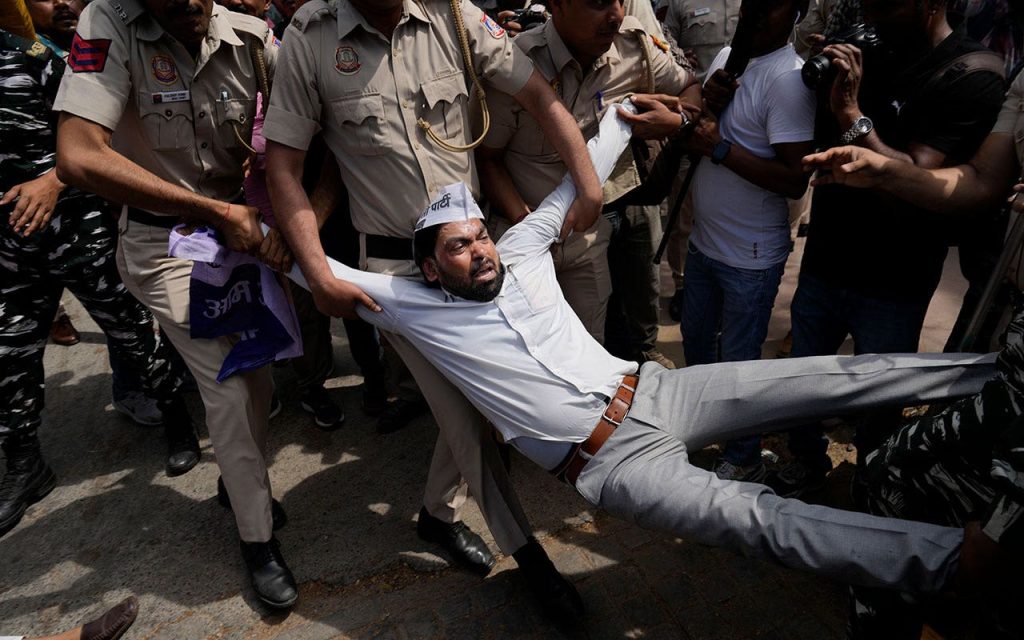Indian police detained dozens of opposition protesters on Tuesday in an effort to prevent them from marching to Prime Minister Narendra Modi’s residence. The protesters were demanding the release of their leader, Arvind Kejriwal, who was arrested last week in a bribery case. Nearly 300 supporters of Kejriwal gathered at India’s Parliament House to begin their march, but were quickly surrounded by police officers. The protesters, chanting “Long Live Kejriwal,” were detained and taken away by police.
Supporters of the Indian opposition leader flocked to the capital in protest of his arrest, criticizing the government’s actions as dictatorial. Protesters expressed frustration at the arrest of a leader who had been doing good for the public of Delhi, with concerns about the consequences for common citizens when a reputed leader is sent to jail. Authorities responded by banning the assembly of four or more people in the area that houses key government buildings. Kejriwal’s Aam Aadmi Party (AAP) denied the bribery accusations, claiming they were fabricated by the federal agency controlled by Modi’s government.
Arvind Kejriwal, a key rival of Prime Minister Modi, was arrested on March 21 on charges of accepting bribes from liquor contractors nearly two years ago. His party, AAP, is part of a broad opposition alliance called INDIA and is considered a significant challenger to Modi’s ruling Bharatiya Janata Party in the upcoming election. Kejriwal’s supporters have been protesting his arrest, and he was taken into custody for seven days following a court order. The federal agency accused Kejriwal of being the key conspirator in the bribery case, but he has refuted the allegations, suggesting they are politically motivated.
As India’s general election approaches, opposition parties have accused the government of misusing its power to target and weaken political opponents through raids, arrests, and corruption investigations. Opposition leaders who defected to Modi’s BJP have seen probes against them dropped, leading to claims of bias and unfair treatment. The BJP denies targeting the opposition, maintaining that law enforcement agencies operate independently. The political climate in India is tense as the opposition and ruling party clash over allegations of misconduct and abuse of power.
The detention of opposition protesters and the arrest of Arvind Kejriwal have sparked outrage and condemnation from supporters and critics alike, highlighting the deep political divisions in India. The ongoing protests and legal battles surrounding Kejriwal’s case underscore the high stakes and intense competition in the lead-up to the general election. Modi’s government faces scrutiny and criticism for its handling of the situation, with accusations of political interference and selective targeting of opposition figures. The outcome of these events could have a significant impact on the political landscape in India and shape the future of the country’s leadership.


